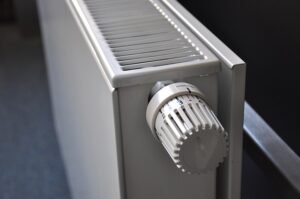Modular electric water heaters provide a scalable and energy-efficient alternative to traditional tank heaters, offering precise temperature control and flexible design for residential and commercial use. Tankless systems eliminate bulky tanks, while electric storage heaters ensure optimal comfort with adjustable heating. These compact units seamlessly integrate, meet fluctuating demands, reduce energy wastage, and minimize carbon footprints in urban environments.
“Discover the future of efficient heating with modular electric water heaters—a scalable solution for your expanding needs. This comprehensive guide explores how these innovative systems offer numerous advantages, from energy conservation to flexible installation. We’ll delve into the technology behind their design, providing insights into their versatility and performance. Whether you’re managing a growing facility or seeking sustainable heating alternatives, this article navigates the benefits and implementation of modular electric water heaters for your expanded heating solutions.”
- Understanding Modular Electric Water Heaters
- Benefits of Scalability in Heating Systems
- Design and Technology Behind Modular Units
- Implementing Expanded Heating Solutions
Understanding Modular Electric Water Heaters

Modular electric water heaters are a revolutionary approach to home water heating, offering a scalable and flexible alternative to traditional tank water heaters. These innovative systems consist of individual heating modules that can be easily connected and controlled, allowing for precise temperature regulation and efficient energy distribution. By eliminating the need for a large central tank, modular designs provide a compact solution suitable for various residential applications.
Electric water heating has gained popularity due to its energy-efficient nature, especially with advancements in technology. Unlike tankless electric systems or point of use heaters, which are typically smaller and instant, modular heaters offer a unique balance between performance and cost-effectiveness. They can be tailored to meet specific heating needs, making them ideal for both new constructions and retrofits, ensuring homeowners have access to hot water without the drawbacks of bulky storage tanks.
Benefits of Scalability in Heating Systems

In today’s dynamic world, heating needs often fluctuate based on various factors, making scalability in heating systems a significant advantage. Modular electric water heaters offer a flexible solution for both residential and commercial settings. By being scalable, these heaters can adapt to expanding demands, ensuring optimal comfort and efficiency. When energy consumption increases during peak hours or colder seasons, scalable systems allow for easy expansion without compromising performance.
This feature is particularly beneficial for multi-dwelling units, businesses, and homes with growing hot water requirements. Unlike traditional tank water heaters, tankless electric systems, also known as point of use heaters or instant electric heaters, provide on-demand hot water, eliminating the need for large storage tanks. This not only reduces energy wastage but also offers significant space savings. Moreover, electric storage heaters, another scalable option, can be controlled and adjusted to meet specific heating needs, making them ideal for both residential and commercial applications, ensuring efficient home water heating or electric hot water systems respectively.
Design and Technology Behind Modular Units

The design and technology behind modular electric water heaters offer a revolutionary approach to meeting escalated heating demands. These innovative systems consist of individual, compact units that can be easily scaled up or down based on specific needs, providing unparalleled flexibility in both residential and commercial settings. Each module is equipped with advanced electric heating elements and smart control mechanisms, ensuring efficient energy distribution and precise temperature regulation.
By adopting modular design principles, these electric water heaters transcend the limitations of traditional tank water heaters and point-of-use heaters. Unlike standard residential electric heaters or tankless electric systems, modular units allow for seamless integration and expansion as hot water demands fluctuate. This adaptability makes them ideal for various applications, from energy-efficient residential use to demanding industrial processes, where instant electric heaters are required for continuous, on-demand hot water supply.
Implementing Expanded Heating Solutions

As residential and commercial heating needs evolve, implementing expanded heating solutions becomes paramount. Modular electric water heaters offer a scalable approach, addressing the growing demand for efficient and versatile heating systems. These innovative devices are designed to adapt to various requirements, ensuring optimal comfort and performance. By integrating advanced technology, such as tankless electric systems or electric storage heaters, users can benefit from instant hot water and precise temperature control, enhancing energy efficiency in both residential and commercial settings.
This transformation is particularly notable in urban areas with high population densities, where space is limited. Tankless electric heaters, often referred to as point of use heaters, are ideal for compact spaces, providing hot water on demand without the need for large storage tanks. Moreover, instant electric heaters offer a sustainable and cost-effective alternative to traditional tank water heaters, contributing to reduced energy consumption and smaller carbon footprints.
Modular electric water heaters offer a revolutionary approach to heating solutions, providing scalability that meets the diverse needs of modern spaces. By understanding their design, leveraging their benefits, and implementing strategic solutions, folks can experience efficient, adaptable, and sustainable hot water systems. In today’s world, where energy demands evolve, these modular units stand as a testament to innovative technology, ensuring comfort while promoting environmental responsibility.






